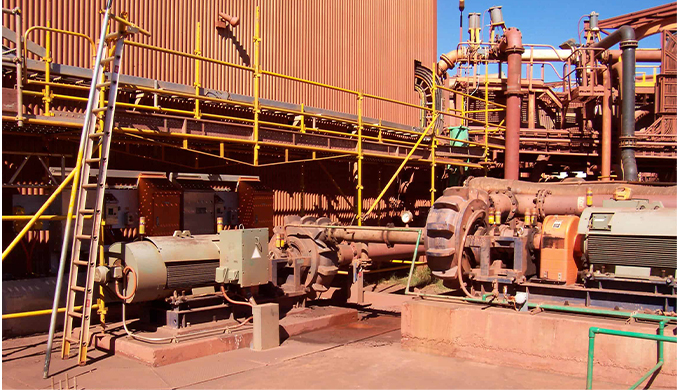Cebuano
- Afrikaans
- Albanian
- Amharic
- Arabic
- Armenian
- Azerbaijani
- Basque
- Belarusian
- Bengali
- Bosnian
- Bulgarian
- Catalan
- Cebuano
- Corsican
- Croatian
- Czech
- Danish
- Dutch
- English
- Esperanto
- Estonian
- Finnish
- French
- Frisian
- Galician
- Georgian
- German
- Greek
- Gujarati
- Haitian Creole
- hausa
- hawaiian
- Hebrew
- Hindi
- Miao
- Hungarian
- Icelandic
- igbo
- Indonesian
- irish
- Italian
- Japanese
- Javanese
- Kannada
- kazakh
- Khmer
- Rwandese
- Korean
- Kurdish
- Kyrgyz
- Lao
- Latin
- Latvian
- Lithuanian
- Luxembourgish
- Macedonian
- Malgashi
- Malay
- Malayalam
- Maltese
- Maori
- Marathi
- Mongolian
- Myanmar
- Nepali
- Norwegian
- Norwegian
- Occitan
- Pashto
- Persian
- Polish
- Portuguese
- Punjabi
- Romanian
- Russian
- Samoan
- Scottish Gaelic
- Serbian
- Sesotho
- Shona
- Sindhi
- Sinhala
- Slovak
- Slovenian
- Somali
- Spanish
- Sundanese
- Swahili
- Swedish
- Tagalog
- Tajik
- Tamil
- Tatar
- Telugu
- Thai
- Turkish
- Turkmen
- Ukrainian
- Urdu
- Uighur
- Uzbek
- Vietnamese
- Welsh
- Bantu
- Yiddish
- Yoruba
- Zulu
Telephone: +86 13120555503
Email: frank@cypump.com
Dis . 05, 2024 09:48 Back to list
Pumps for Efficient Wastewater Treatment Plant Operations and Management Solutions
The Role of Pumps in Wastewater Treatment Plants
Wastewater treatment plants (WWTPs) play a critical role in safeguarding public health and protecting the environment. Among the various components involved in the treatment process, pumps are indispensable assets that ensure the efficient operation of the entire system. They facilitate the transportation of wastewater through various treatment stages, contributing significantly to the overall effectiveness of the treatment facility.
Understanding the Importance of Pumps
The primary function of pumps in a wastewater treatment plant is to move water and waste materials from one stage of the treatment process to another. This movement is essential, as it allows for the sequential treatment processes to occur efficiently. Wastewater typically undergoes several stages—preliminary, primary, secondary, and sometimes tertiary treatment—each needing reliable pumping mechanisms to function optimally. If the pumping systems falter, even the most advanced treatment processes can be rendered ineffective.
Types of Pumps Used
Several types of pumps are commonly used in WWTPs, each serving specific purposes. The two most prevalent types are centrifugal pumps and positive displacement pumps.
1. Centrifugal Pumps These pumps are widely employed due to their capability to handle large volumes of liquid. They utilize rotational energy to move water through the system, making them ideal for transporting wastewater to various treatment basins. Centrifugal pumps are particularly efficient at lifting water over long distances and are versatile, able to handle varying flow rates.
2. Positive Displacement Pumps These pumps are often used for applications that require the transfer of sludges and slurries which contain solids. They work by trapping a fixed amount of liquid and then forcing it into the discharge pipe. Positive displacement pumps are preferred in situations where a constant flow rate is essential, as they maintain a steady output regardless of the pressure conditions.
wastewater treatment plant pumps

Challenges Faced by Pumps in WWTPs
While pumps are vital to the operation of wastewater treatment plants, they also face numerous challenges. One significant concern is the presence of solids and debris in wastewater. Pumps must be capable of handling abrasive materials without incurring damage or operational inefficiencies. To mitigate these challenges, many plants adopt preventive maintenance strategies, including regular inspections and the use of non-clogging pump designs.
Another challenge is energy consumption. Pumps can be energy-intensive, contributing to the overall operational costs of a wastewater treatment facility. As such, many WWTPs are exploring energy-efficient technologies and practices to optimize pump performance while reducing energy consumption. Variable frequency drives (VFDs) are increasingly used to regulate pump speeds based on flow requirements, enabling more efficient operation.
Innovations in Pump Technology
Recent advancements in pump technology aim to enhance the efficiency and reliability of wastewater treatment processes. Innovations such as smart pumps equipped with sensors and IoT technology allow for real-time monitoring and predictive maintenance. These systems can alert operators to potential issues before they become critical, reducing downtime and maintenance costs.
Additionally, the development of materials that resist corrosion and wear has improved the durability of pumps in harsh wastewater environments. Modern pumps are designed to withstand the effects of chemicals and abrasive substances present in wastewater, thus extending their operational lifespan and reliability.
Conclusion
Pumps are the unsung heroes of wastewater treatment plants, providing a crucial link in the chain of processes that ensure the effective treatment of wastewater. Their ability to transport various forms of water and waste efficiently impacts the overall success of wastewater treatment operations. As technology continues to evolve, the integration of advanced pump systems will enhance the efficiency and sustainability of these facilities. With ongoing investment in research and development, the future of wastewater treatment pumps looks promising, ultimately contributing to cleaner water and a healthier environment for all.
-
Advanced Flue Gas Desulfurization Pump with GPT-4 Turbo | Durable & Efficient
NewsJul.31,2025
-
ISG Series Vertical Pipeline Pump - Chi Yuan Pumps | Advanced Hydraulic Design&Durable Construction
NewsJul.31,2025
-
ISG Series Vertical Pipeline Pump - Chi Yuan Pumps | Energy Efficient & Low Noise
NewsJul.31,2025
-
pipeline pump - Chi Yuan Pumps Co., LTD.|High Efficiency&Low Noise
NewsJul.31,2025
-
ISG Series Vertical Pipeline Pump - Chi Yuan Pumps Co., LTD.|High Efficiency, Energy Saving, Low Noise
NewsJul.30,2025
-
ISG Series Vertical Pipeline Pump- Chi Yuan Pumps|High Efficiency&Low Noise
NewsJul.30,2025










